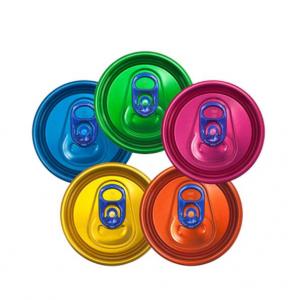Coated Aluminium Coil for Aluminium Can End
- Loading Port:
- Shanghai
- Payment Terms:
- TT or LC
- Min Order Qty:
- 5 m.t.
- Supply Capability:
- 5000 m.t./month
OKorder Service Pledge
OKorder Financial Service
You Might Also Like
1.Specification
ALLOY:AA5182,AA5052
TEMPER:H48,H49
THICKNESS:0.26-0.29mm
WIDTH:60-1800mm(end&tab stock)
PAINT:PPG OR VALSPAR
LUBRICATION:HENKEL
Special specification is available on customer's requirement
2.Description
Coating Systems: Internationally recognised coil coating systems complying with FDA and other industry regulations are available to meet the requirements for beer, tea, carbonated soft drink and other beverages. These include:
A.Water based epoxy resin system
B.Solvent based epoxy resin system
C.Solvent based polyester resin system
D.Coatings are available for post lube or non-post lube applications.
E.Coloured end stock includes a variety of gold shades as well as a limited range of double coated can end to suit specific customer requirements
3.Pictures
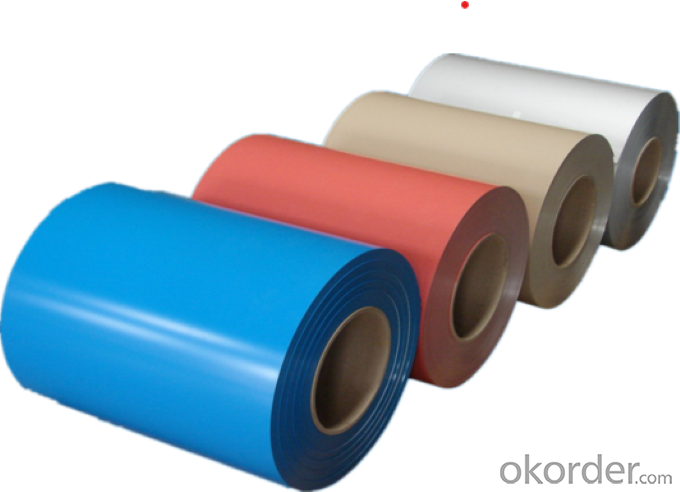
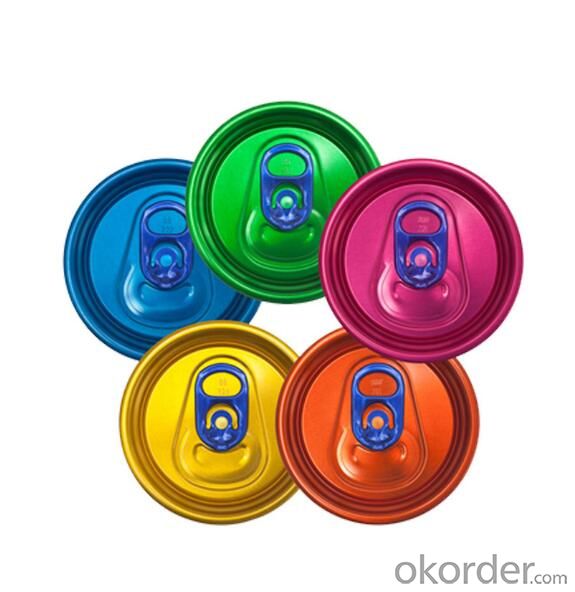
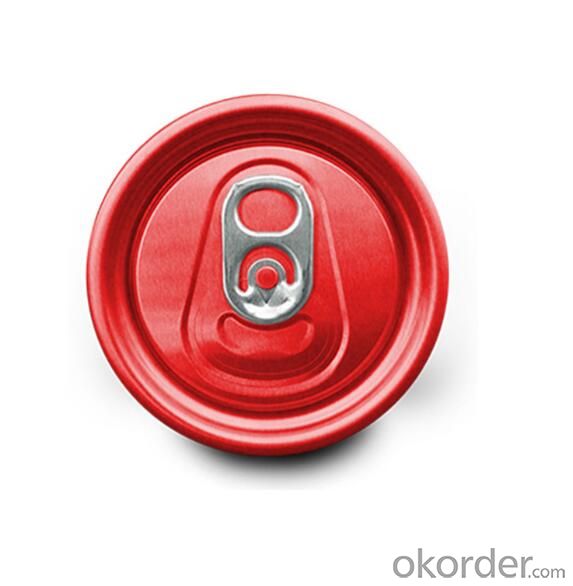
5.Certificates
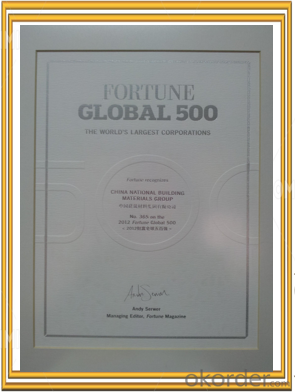
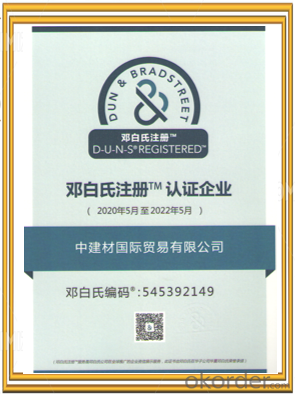
- Q:Can aluminum foil coil be stores for a long time?
- It is ok within one or two years, but for five or six years, it will be oxidized.
- Q:What are some common applications for aluminum coils?
- Due to their exceptional qualities and versatility, aluminum coils find widespread use in various industries. They are particularly utilized in: 1. Construction: The construction industry extensively employs aluminum coils for roofing, cladding, and insulation purposes. Their lightweight nature makes them ideal for reducing overall structure weight and providing excellent corrosion resistance. 2. Transportation: The automotive and aerospace industries widely utilize aluminum coils. In the automotive sector, they are employed in the manufacturing of heat exchangers, radiators, and condensers, as well as lightweight body panels, improving fuel efficiency. In the aerospace industry, aluminum coils are used to manufacture aircraft parts with a high strength-to-weight ratio, such as wings, fuselages, and engine components. 3. Electrical and Electronics: The electrical and electronics industry employs aluminum coils in various applications. They are commonly used in the production of transformers, motors, and generators due to their excellent conductivity and lightweight nature. Aluminum coils also find use in electrical cable manufacturing, as they offer good electrical conductivity and resistance to corrosion. 4. Packaging: The packaging industry extensively uses aluminum coils due to their excellent barrier properties. They are commonly employed for packaging food and beverages, pharmaceuticals, and other consumer products. Aluminum coils provide an impermeable barrier against moisture, oxygen, and light, ensuring the preservation and protection of packaged goods. 5. Heating, Ventilation, and Air Conditioning (HVAC): Aluminum coils are widely integrated into HVAC systems for their excellent heat transfer properties. They are commonly found in air conditioning systems, heat pumps, and refrigeration units. Aluminum coils facilitate efficient heat exchange, ensuring effective cooling and heating processes. In conclusion, aluminum coils are widely employed in the construction, transportation, electrical and electronics, packaging, and HVAC industries. Their lightweight nature, corrosion resistance, excellent conductivity, and heat transfer properties make them highly versatile and valuable in these sectors.
- Q:What’s the production standard of aluminum coil?
- GB/T3880-2006 mechanical standard GB/T3190-1996 chemical standard
- Q:Are there any limitations on the bending or shaping of aluminum coils?
- Aluminum coils do have limitations when it comes to bending or shaping. Despite being a soft and malleable metal, there are factors that can affect its bendability. The thickness of the aluminum coil plays a role in its bendability. Thicker coils are generally more difficult to bend compared to thinner ones because they have increased resistance to deformation. The temper or hardness of the aluminum coil also affects its bendability. Different tempers, such as soft, half-hard, or hard, have varying degrees of malleability. Soft tempers are easier to bend, while harder ones require more force and may be prone to cracking or breaking during bending. The desired bend or shape's design and complexity can impose limitations as well. Sharp bends or intricate shapes may cause the aluminum coil to crack or deform, especially if it lacks proper support or if the bending radius is too small. Impurities, defects, or alloying elements present in the aluminum coil can also impact its bendability. These factors can lead to inconsistencies in the material's mechanical properties, making it more susceptible to cracking or breaking during bending or shaping. Therefore, it is crucial to consider the thickness, temper, design, and quality of the aluminum coil to ensure successful and safe bending and shaping.
- Q:Are there any specific maintenance requirements for aluminum coils?
- Yes, aluminum coils require regular maintenance to ensure optimal performance and longevity. Some specific maintenance requirements for aluminum coils include cleaning them regularly with a mild detergent and water solution, removing any debris or dirt that may accumulate on the coils, inspecting for any signs of corrosion or damage, and ensuring proper airflow around the coils by keeping the surrounding area clear. Additionally, it is important to schedule professional maintenance and tune-ups to check for refrigerant leaks or any other issues that may affect the performance of the aluminum coils.
- Q:How are aluminum coils used in the production of battery enclosures?
- Due to their exceptional properties, aluminum coils find wide application in the manufacturing of battery enclosures. Firstly, aluminum, being a lightweight material, is perfect for creating battery enclosures that are lightweight themselves, a crucial feature for portable devices and electric vehicles where weight reduction is of utmost importance. Moreover, aluminum coils can be easily shaped and sized to accommodate specific battery designs, giving manufacturers the ability to customize the enclosures. This flexibility in shaping also aids in optimizing space utilization and enhancing the overall efficiency of the battery system. Furthermore, aluminum exhibits high resistance to corrosion, a vital characteristic for battery enclosures that are frequently exposed to harsh chemicals and environments. This corrosion resistance ensures the longevity and dependability of the enclosure, safeguarding the battery cells from harm and guaranteeing safe operation. Additionally, aluminum possesses excellent thermal conductivity, enabling efficient dissipation of heat generated during battery charging and discharging. This is crucial in preventing overheating and maintaining the optimal temperature range for optimal battery performance. In conclusion, aluminum coils play a pivotal role in the production of battery enclosures by providing lightweight, customizable, corrosion-resistant, and thermally conductive properties. These properties contribute to the overall efficiency, safety, and durability of battery systems employed in a wide range of applications, including consumer electronics, electric vehicles, and renewable energy storage.
- Q:Can aluminum coils be used in the production of heat shields?
- Heat shields can indeed be made using aluminum coils. Aluminum is a preferred option for heat shields because of its exceptional thermal conductivity, lightweight characteristics, and ability to reflect radiant heat effectively. Typically, heat shields are designed to safeguard delicate components or structures from excessive heat generated by engines, exhaust systems, or other sources. By shaping and sizing aluminum coils, one can create efficient heat shields that disperse heat and prevent its transfer to surrounding areas. Furthermore, aluminum exhibits corrosion resistance, making it suitable for applications where heat shields may encounter harsh environments or chemicals. All in all, aluminum coils are an appropriate material choice for producing heat shields due to their thermal properties, adaptability, and long-lasting nature.
- Q:Other than alloys. I'm trying to think of a way I can make an aluminum knife that will hold an edge. One group of researches say they used 60 metric tons of force to realign the molecular structure and give the metal strength equal to steel. I don't have a 60 ton press aha. Would heat treatment plus 10 tons of pressure repeated have a similar affect?
- Aluminum bronze is used commercially to make non-sparking knives. Why try to reinvent the wheel? I'm trying to think of a way I can make an aluminum knife that will hold an edge. You can strengthen aluminum by either cold working or heat treating a suitable alloy, but it will never be anything close to a good steel knife. Would heat treatment plus 10 tons of pressure repeated have a similar affect? No. Assuming that you are talking about the article linked to below: - you would have to duplicate the alloy process, even then you could only make a small thin sheet. They used a heat treatable alloy. The process involves torsional strain under 60 metric tons per square centimeter compression. How big a press do you think you would need for a knife size blank? And remember, you have to apply torsional cold work while compressing it. -Their results ( 1 gPA YS 5% elongation in a very thin sheet) don't look that great compared to a good knife steel. Or a good titanium knife.
- Q:Are there any limitations on the anodizing of aluminum coils?
- Yes, there are certain limitations on the anodizing of aluminum coils. Firstly, the size and weight of the aluminum coils can impose limitations. Anodizing is typically done in tanks or baths, so the size of the coil must fit within the capacity of the tank. Additionally, larger and heavier coils may require specialized equipment or processes to ensure proper anodizing. Secondly, the alloy composition of the aluminum coils can affect the anodizing process. Different aluminum alloys have varying levels of response to anodizing, and some alloys may not anodize as well as others. It is important to consider the alloy composition and consult with experts to determine the suitability and potential limitations of anodizing specific aluminum coils. Thirdly, the surface condition of the coils can impact the quality of anodizing. Any imperfections such as scratches, dents, or surface contaminants can affect the evenness and consistency of the anodized layer. It is essential to ensure that the coils are properly cleaned and prepared before anodizing to achieve desired results. Lastly, certain design features or complex shapes of the aluminum coils can pose limitations on anodizing. Anodizing involves the immersion of the coil in an electrolyte solution, and intricate designs or complex shapes may make it challenging to achieve uniform coating thickness. Specialized masking or racking techniques may be required to overcome these limitations. It is important to work closely with anodizing experts or service providers to understand and address any limitations specific to the aluminum coils and achieve the desired anodizing results.
- Q:i came across marine grade aluminum (grade 6082), somebody was telling it is a special grade, i checked in internet, there is nothing specific in marine grade 6082, every manufacturer can produce it. please clarify. thanks
- Al-Si Alloys 5xxx - Al-Mg Alloys 6xxx - Al-Mg-Si Alloys (like 6061,6063, and 6111) 5xxx alloys find wide application in Building construction,highways structures including bridges, storage tanks and pressure vessels, and marine applications. 6061 alloy finds broad use in welded structural members such as truck and marine frames, railroad cars,and pipelines.
1. Manufacturer Overview |
|
|---|---|
| Location | |
| Year Established | |
| Annual Output Value | |
| Main Markets | |
| Company Certifications | |
2. Manufacturer Certificates |
|
|---|---|
| a) Certification Name | |
| Range | |
| Reference | |
| Validity Period | |
3. Manufacturer Capability |
|
|---|---|
| a)Trade Capacity | |
| Nearest Port | |
| Export Percentage | |
| No.of Employees in Trade Department | |
| Language Spoken: | |
| b)Factory Information | |
| Factory Size: | |
| No. of Production Lines | |
| Contract Manufacturing | |
| Product Price Range | |
Send your message to us
Coated Aluminium Coil for Aluminium Can End
- Loading Port:
- Shanghai
- Payment Terms:
- TT or LC
- Min Order Qty:
- 5 m.t.
- Supply Capability:
- 5000 m.t./month
OKorder Service Pledge
OKorder Financial Service
Similar products
New products
Hot products
Hot Searches
Related keywords
